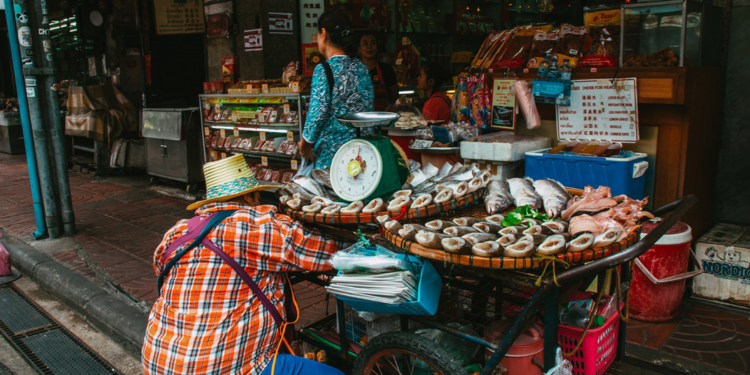
10/23/2009
Just when you think diversity can’t become any more complicated, it does. Imagine the heartbreak of Cantonese-speaking immigrants who can’t understand the newbies who converse in Mandarin. How cruel to live in Chinatown and feel isolated because you can’t speak the majority language.
He grew up playing in the narrow, crowded streets of Manhattan’s Chinatown. He has lived and worked there for all his 61 years. But as Wee Wong walks the neighborhood these days, he cannot understand half the Chinese conversations he hears.Cantonese, a dialect from southern China that has dominated the Chinatowns of North America for decades, is being rapidly swept aside by Mandarin, the national language of China and the lingua franca of most of the latest Chinese immigrants.
The change can be heard in the neighborhood’s lively restaurants and solemn church services, in parks, street markets and language schools. It has been accelerated by Chinese-American parents, including many who speak Cantonese at home, as they press their children to learn Mandarin for the advantages it may bring as China’s influence grows in the world.
But the eclipse of Cantonese — in New York, China and around the world — has become a challenge for older people who speak only that dialect and face increasing isolation unless they learn Mandarin or English. Though Cantonese and Mandarin share nearly all the same written characters, the pronunciations are vastly different; when spoken, Mandarin may be incomprehensible to a Cantonese speaker, and vice versa. [Rise of Mandarin Changes the Sound of Chinatown, October 23, 2009
In another diversity conundrum, black Americans in New York are not too happy with the new shipment: For African Immigrants, Bronx Culture Clash Turns Violent. Actually, The New York Times typically takes the side of the immigrants, as hinted in the title.
The storefronts on a stretch of Webster Avenue in the South Bronx tell the story of local shifts as well as any census: a Senegalese-run 99-cent store, an African video store, an African-run fast-food spot, a mosque, several African restaurants.The owner of Cafe de C.E.D.E.A.O., named for the coalition of West African nations, envisioned it as a community hub in the Bronx neighborhood of Claremont, where Americans would try his wife’s cassava soup and realize it’s not so foreign after all. But a year in, the owner, Mohammed M. Barrie, said he could count the number of American patrons on one hand.
Meanwhile, he and his customers have been taunted, he said, and his restaurant’s window urinated on. Someone tried to break into a diner’s car. Then there is the bullet hole in the front window, a mark from a gunshot through the window late one night last summer.
"Those people, they don’t respect African people," said Mr. Barrie, a Sierra Leone native who settled in the United States in 1998. "I pay my bills, I pay my taxes, they still … " He trailed off.
Down the block, Muhammed Sillah sat in front of the tiny Al Tawba mosque, eyeing the jungle gym across the street and remembering when he used to let his children play outside.
"Spanish kids, American kids — but no African kids," said Mr. Sillah, a Gambian mechanic raising five children in Claremont. "We're scared."
Their fear and frustration are shared by many local West African immigrants, whose fast-growing presence in the neighborhood — and in the city over all — has been accompanied by increasing tensions with the local black American residents.
"They think they're better than black people," James Carroll, a retired Army specialist standing in front of a busy convenience store, said of the West African immigrants. "We're supposed to be one community — we're supposed to be able to get along — but they don’t give it a chance."
Some of the tension can be attributed to cultural differences that all immigrants face, though the West Africans in Claremont, as conservative Muslims, have the added challenge of adjusting to a post-9/11 New York. But resentment and mistrust has escalated to actual violence, and, they say, left them feeling under siege.
That last little quote was most of the coverage from the local Americans' viewpoint. I’m sure there is fault on both sides, but the Times' article does not attempt balance in explaining the "culture clash."
This is a content archive of VDARE.com, which Letitia James forced off of the Internet using lawfare.